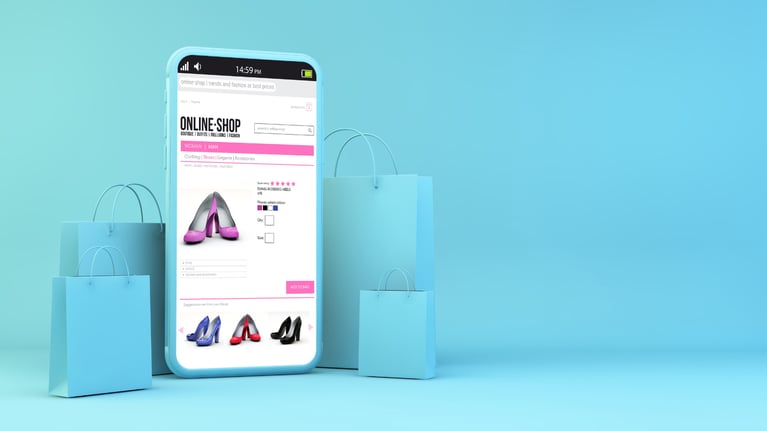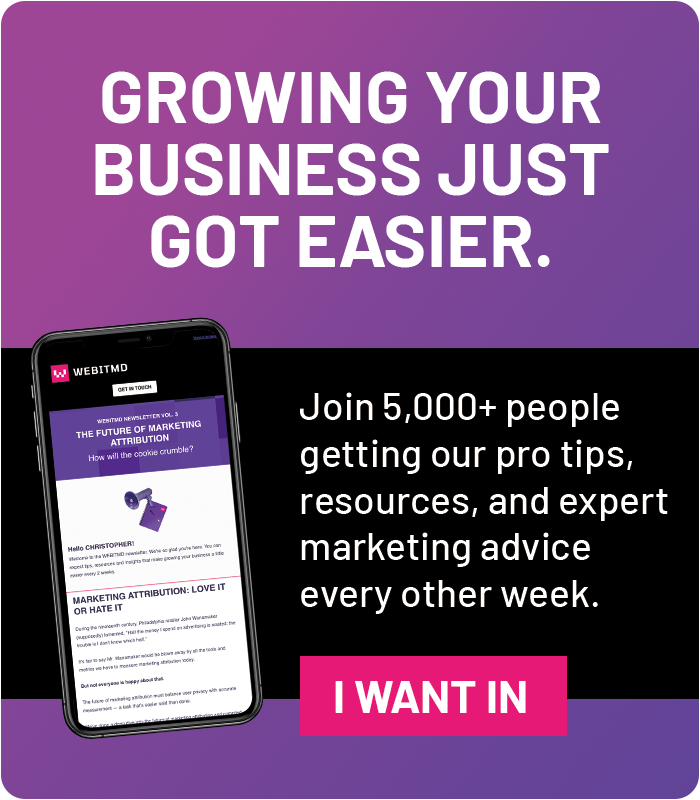I’ve been working in b2b email marketing for almost a decade now. If there is one thing I have learned (and there are several, actually), it is that the rules are different than when emailing consumers.
In b2b email marketing, you don’t always have coupon codes or limited-time offers to incentivize purchases. It’s all about timing and messaging; sending the right email to the right person at the right time.
Don’t be intimidated, though. By following the steps below, you can create a solid foundation for your email marketing campaigns and get started in the right direction.
How To Get Started With B2B Email Marketing
Whether you are growing your own business or just landed your dream job, launching your first B2B email marketing campaign doesn’t have to be rocket science. Just follow these steps to and you will be golden:
1. Remove Lost Contacts
The first thing you want to do is remove all the lost contacts from your email database. A lost contact is just an email address that is guaranteed to hard bounce. This can happen for a couple reasons, such as:
- The company no longer exists
- The person changed jobs and their email address is no longer valid
- Security filters
- They blocked your domain (least likely)
High bounce rates can hurt your email reputation. Some email platforms may even suspend your emailing privileges if your hard bounce rate is too high. So before you send your first email, make sure you clean out as many lost contacts as possible
Use email verification software
Email verification software can help detect nonexistent email addresses so you can clear them from your list before that first email goes out. Some good options include:
- Neverbounce
- Kickbox
- Listclean
Go ahead and kick those dead emails to the curb! Remove them from your database! You don’t need them anymore!
2. Create a Do Not Email List
After you have cleaned the lost contacts, create a list of contacts that you do not want to receive your marketing emails.
Some contacts are more sensitive than others and you may not want to market to them if they are:
- Partners or vendors
- High-profile customers
- Competitors who are “spying” on your marketing
- Employees
Think of all the people you wouldn’t want to get a marketing email from and put them on a list. You can then use that as a suppression list for your b2b email marketing campaigns.
3. Send an Opt Out Email
If it’s been awhile since your last email or if you’ve never sent one before, send an introductory email to your entire database explaining who you are and what kinds of emails you will be sending. Your contacts may not remember you or, if you brought them over from a previous company, they may be confused by the new address and company name.
Give recipients the option to unsubscribe from your email list if they aren’t interested. It may seem counterintuitive, but your open rates and unsubscribe rates will thank you later.
4. Create Your Primary Email Segments
The secret to success with email marketing is to be as targeted as possible. Afterall, you wouldn’t want a bunch of uninteresting emails clogging your inbox, would you?
Before you send any more emails, you’ll want to create your primary email segments. These are just groups of contacts that share a common characteristic, such as:
- Industry
- Location
- Product or service of interest
- Biggest challenge or pain point
- Lifecycle stage
- Job title
- Etc.
Creating email segments will not only give you better results, it will also help to guide your strategy and tell what types of emails to send. For example, you would probably want to send current customers different emails and at a different frequency than non customers.
This leads us to the next step…
5. Determine What Types of Emails To Send
Now that you know what your contacts segments are, it’s time to decide what kinds of emails you want them to get from you.
Your email marketing should have different layers to it; you don’t want every email to have pushy sales messaging. Mix it up with a monthly newsletter or helpful Ebook so your audience doesn’t get tired of hearing the same thing over and over.
Some common types of emails you might want to consider are:
- Newsletter
- Product announcements
- New content or resources
- Offers & discounts
- Referral codes
6. Create Your Email Calendar
It’s almost time to launch your first b2b email marketing campaign! The last step is to create your email calendar…
Plan as far ahead as possible while still leaving room to be agile. Last minute changes and newsworthy events are hard to plan for, so it’s important to be agile and make room for those spur of the moment ideas.
Your email calendar should include all the important logistical details about your campaign, such as:
- Sending dates
- Email type
- Email topic
- Audience
- CTA and/or target url
Once you’ve got the details ironed out, you can start building your first campaign
7. Enjoy The Process
It might take awhile to gain traction and see results with email marketing. In the meantime, it’s important that you learn to enjoy the process of creating and publishing emails for your audience. Here are some things to remember:
- You will still see some bounces at first (email verification software isn’t perfect)
- You will see a high number of unsubscribes at first. It’s normal to see a lot of contacts drop off in the first few months. But if your content marketing and SEO strategies are working, you should be gaining new contacts faster than you are losing the old ones.
Once you get past the initial ramp up period, you can start to have some real fun with testing and optimizing for performance. Now get to it!
Getting Wins With B2B Email Marketing
A little bit of planning and preparation can go a long way when it comes to b2b email marketing. The trick is to not overthink it. Trust your instincts and remember that your contacts are just people, too. What kinds of email would YOU want to receive? Over time, the data will tell you what works and what doesn’t.
WEBITMD has helped 100’s of businesses launch and grow their B2B email marketing strategies. If you need some help or just want to talk shop, get in touch with us today. You can also download our free Growth Stack Guide below to learn more about our full-funnel approach to digital marketing.


.jpg)



.jpg)



.jpg)





![5 Reports to Elevate Your HubSpot Sales Dashboard [+ Examples]](https://blog.webitmd.com/hs-fs/hubfs/Imported_Blog_Media/6-winning-examples-of-a-hubspot-sales-dashboard-2.png?width=767&name=6-winning-examples-of-a-hubspot-sales-dashboard-2.png)